Device platforms, powered by the Internet of Things (IoT) and cloud technologies, enhance interconnectivity and data sharing between devices, offering personalized user experiences that extend beyond hardware to deliver service-based value. As a variety of devices and platforms continue to emerge, automating development processes with DevOps technology and ensuring the stable operation of large-scale servers have become key factors in business expansion and maximizing productivity.
Digital customer service has evolved beyond traditional face-to-face visits, phone inquiries, and reservations. With AX and DX technologies, businesses now leverage advanced solutions such as chatbots, voice recognition, location-based monitoring, and client journey data analysis to capture client needs in real time. AI-powered features, including automated service recommendations and AI concierge functions, further optimize client interactions.
In sales system management, AI enhances operational efficiency by automating administrative tasks, optimizing digital marketing, and enabling faster, data-driven decision-making. These advancements support ongoing business innovation and improved service capabilities.
Driving Device Business Innovation in the Era of Hyperconnectivity with Device Platforms
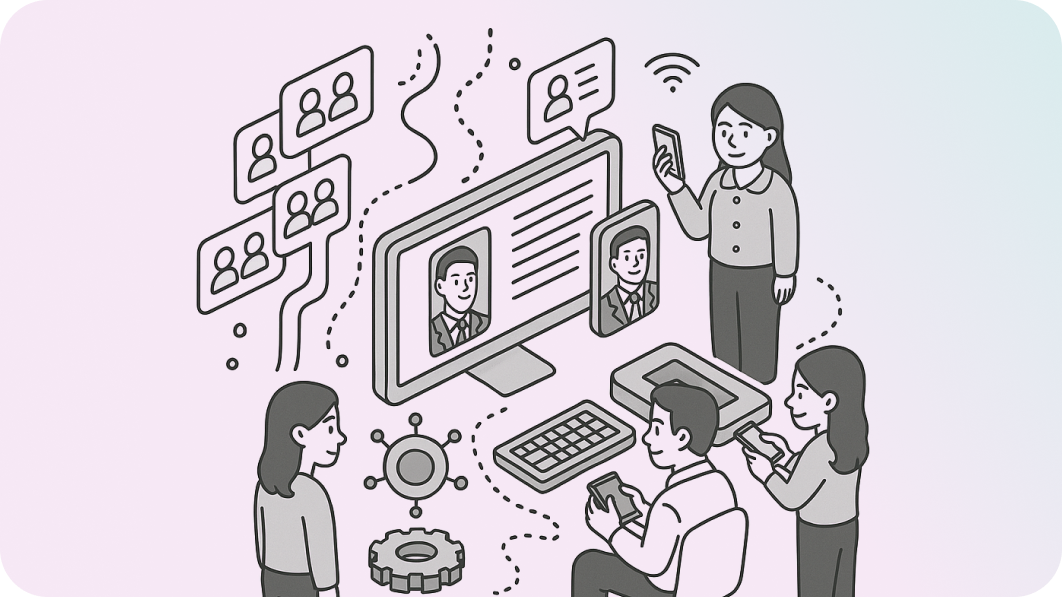
AX Concierge
AX Concierge delivers optimized integrated services tailored to diverse customer needs and situations. It offers differentiated experiences through various personalized services, including Welcome Concierge, Conversational Concierge, and Location and Space-Based Concierge. The platform ensures a seamless user experience across all devices, including PCs, mobile devices, and tablets, enabling convenient access without time or location constraints. This enhances business innovation and maximizes customer satisfaction.
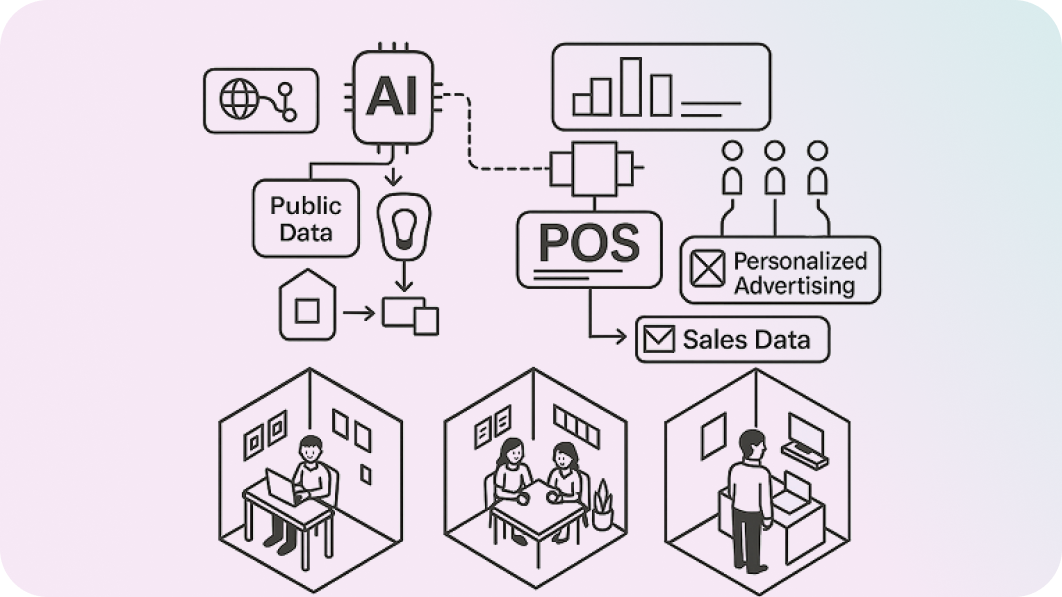
Enhancing Store and Office Operational Efficiency
We provide an integrated management service that maximizes the efficiency of store and office operations. By utilizing public data, our solution optimizes energy management by integrating with lighting and HVAC systems. It also leverages Point of Sales (POS) data to streamline store management and enable personalized advertising. Additionally, unmanned store and office management solutions help reduce operational costs while implementing an innovative service management framework.
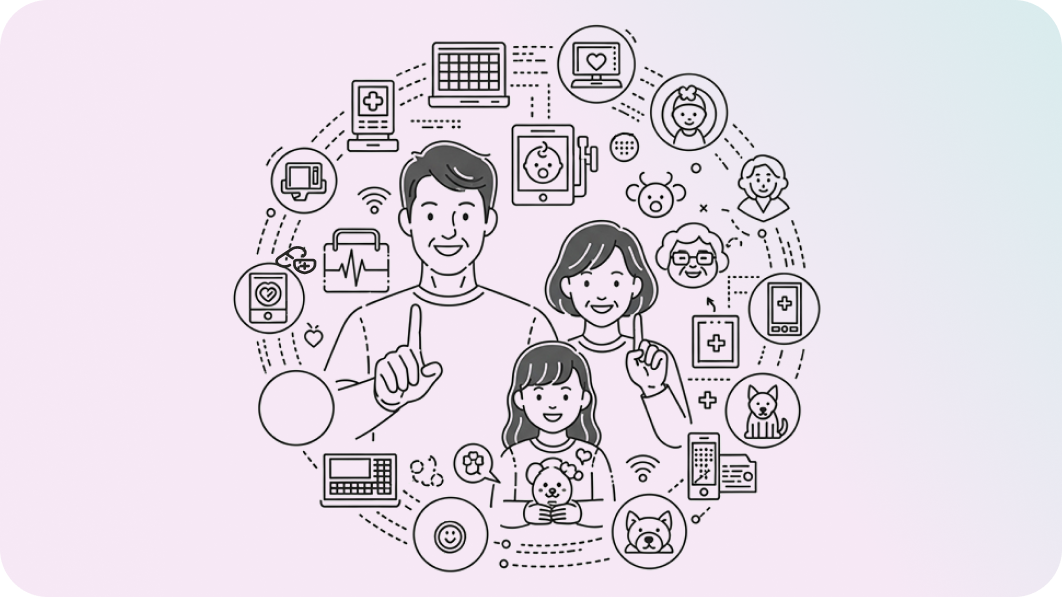
Lifestyle Care
We provide digital services that enhance quality of life by focusing on lifestyle care. Our platform enables integrated control and monitoring of healthcare devices, along with tailored solutions for infant and senior care, as well as pet management. By leveraging user data, we deliver personalized lifestyle and health management services that seamlessly integrate healthcare into daily life, offering practical and effective solutions for individuals and families.
ODP (Open Device Platform) is LG CNS’s device platform solution that integrates essential services such as membership management, billing, and compliance alongside core device control modules. This allows for the seamless deployment of customized services that meet client requirements. Leveraging years of experience in platform business development and operations, LG CNS enables rapid prototyping and Proof of Concept (PoC) execution, allowing businesses to quickly assess market responses. This minimizes client risks while reducing decision-making time and costs.
As technology evolves and manufacturing trends shift rapidly, LG CNS continues to provide differentiated services through ODP—an innovative platform that seamlessly connects devices and clients.
-
Provides essential services for device management, including device control, SDK, and SOTA/FOTA*
*SOTA: Software Over-the-Air
*FOTA: Firmware Over-the-Air
-
Utilizes pre-built modules for cost-effective and rapid service deployment
-
Facilitates a developer-driven ecosystem with broad integration of third-party devices
-
If you provide your service requirements, we can guide you on the necessary modules, costs, and timelines. If you need a platform but require a strategic approach, we can collaborate with our consulting team to conduct a business assessment and develop a roadmap for future enhancements. Additionally, before full-scale implementation, you can validate the platform’s effectiveness through a fast and cost-efficient Proof of Concept (PoC) on select services and devices before proceeding with full deployment.
-
Most externally available data, whether provided via API or database, can be accessed and integrated. We support various authentication methods, including OAuth (Open Authorization) and JWT (JSON Web Token), with pre-configured security integrations for key services, ensuring seamless connectivity. For example, integration with Google Calendar allows users to manage schedules through a voice chatbot, while e-commerce integration enables smooth order and payment processing. Additionally, real-time public and financial data can be leveraged to enhance customer convenience services.
-
No, having proprietary devices is not a requirement. Even without network-based proprietary devices, ODP can be used to easily develop web and app services for your intended application. If devices are needed for service implementation, we also support new service development through partnerships with external vendors.
Smart Service Innovation Through Digital Customer Services
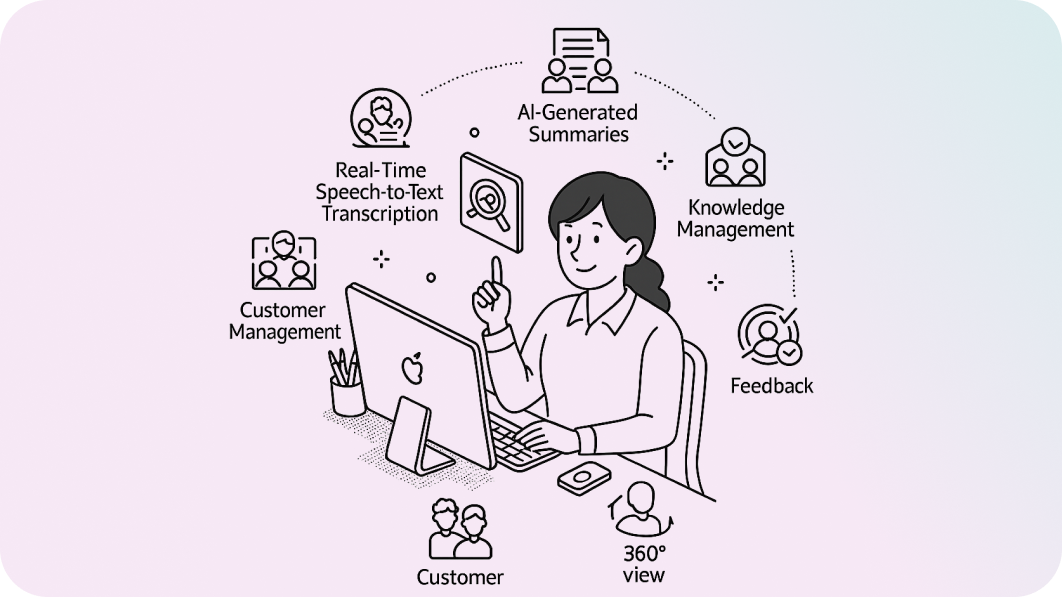
Consultant Assistant Application
The Consultant Assistant Application System is optimized to provide integrated services for quickly resolving customer pain points. It transcribes inquiries from calls and chats in real time using Speech-to-Text (STT) technology and leverages Generative AI to summarize inquiries, search AI-trained Knowledge Management (KM) content, and recommend solutions. Additionally, it offers a Customer 360° One-View, displaying a complete history of past issue resolutions and providing recommended customer feedback templates (via email or SMS). As a result, this application evolves into a virtual assistant for consultants, enhancing their efficiency and enabling smarter, more effective customer interactions.
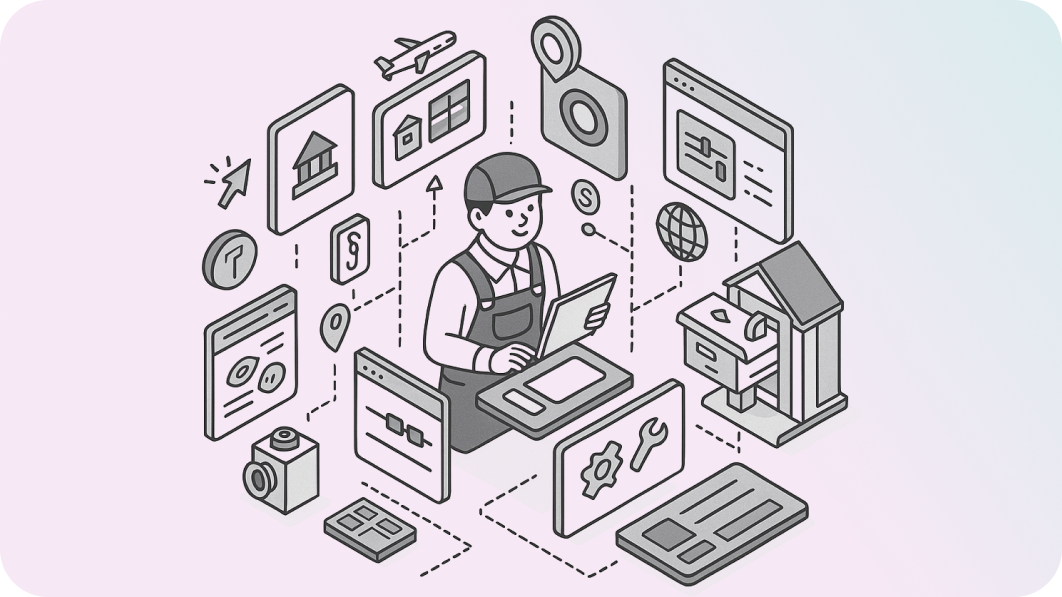
Optimized Field Service Control
The Field Service Control System enhances on-site service efficiency by enabling real-time management and response to variables and issues encountered by service consultants during home visits. This system offers route optimization for travel, real-time part recommendations based on individual repair needs, and location-based management of service areas. Additionally, it provides guided repair instructions, intelligent scheduling recommendations, and remote troubleshooting and control of field operations. By integrating these functions, the solution maximizes operational efficiency for field service management, ensuring faster issue resolution and a seamless service experience.
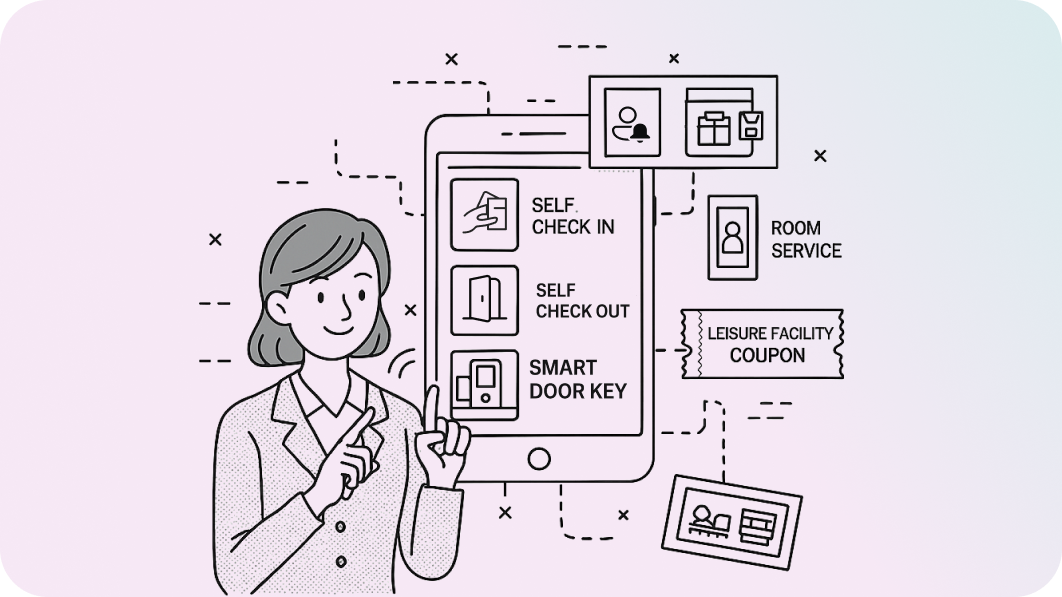
Digital Leisure Concierge Service
Beyond traditional hotel and resort phone or online reservations, this service provides self check-in and check-out via customers' mobile devices. It offers smart door keys, in-room service orders, and digital coupons or tickets for leisure facilities—all without the need for staff assistance or on-site visits, enabling seamless access without waiting. Furthermore, the service is evolving to offer personalized leisure plans, along with recommendations for nearby tourist attractions and restaurants, based on customers' personalized data and leisure activity history.
AICC (AI Contact Center) refers to a customer service center that integrates AI, cloud, and other DX and AX technologies.
LG CNS’s AICC includes various AI technologies such as STT (Speech-to-Text), which converts spoken language into text, TA (Text Analysis), which extracts and analyzes meaning from text, NLP (Natural Language Processing), which identifies the intent of a question and finds relevant answers, and TTS (Text-to-Speech), which generates spoken responses based on text input.
By integrating AICC technology with CX unified data (Customer 360° View) and other services, LG CNS provides a digital customer service solution that quickly addresses pain points and diverse needs.
Leveraging years of experience in enterprise system development and operations, LG CNS offers tailored solutions, rapid prototype development, and PoC execution to swiftly assess market responses, reducing decision-making time and costs while minimizing customer risks.
Amid evolving technological advancements and rapidly changing customer demands, experience LG CNS’s differentiated digital customer service solutions powered by DX and AX.
-
If you provide the requirements for the service you wish to implement, we can guide you on the necessary AI and DX solution elements, costs, and timeline. If you need a strategy for improving client services, we can collaborate through our consulting services to discuss everything from business diagnostics to a future enhancement roadmap. Additionally, if you are operating a Customer Relationship Management (CRM) system, contact center, or field service system, we can conduct a Proof of Concept (PoC) quickly and cost-effectively, allowing you to verify its effectiveness before proceeding with full-scale implementation.
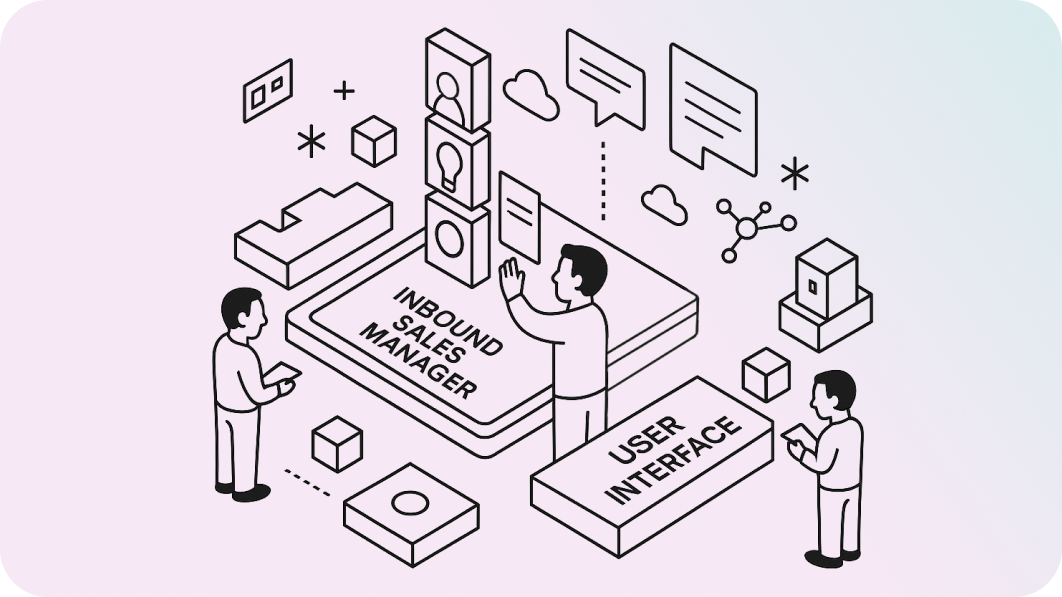
Solutions for Sales and Business
LG CNS provides consulting services for business process design at the sales planning stage and develops and operates systems that enable efficient management of products, pricing, clients, and orders. Incorporating extensive sales expertise, LG CNS’s sales and business solutions enhance work efficiency and enable effective promotion planning and execution. With an intuitive user interface (UI) and optimized performance, the system streamlines client interactions, improving overall satisfaction. Additionally, external channel integration expands sales opportunities, while features for sales performance tracking, incentive management, employee training, and internal communication support sales teams and employees. The system’s compatibility with tablets and mobile devices improves accessibility, ensuring that critical sales data is available in real-time for swift and informed decision-making, ultimately driving revenue growth and enhancing client satisfaction.
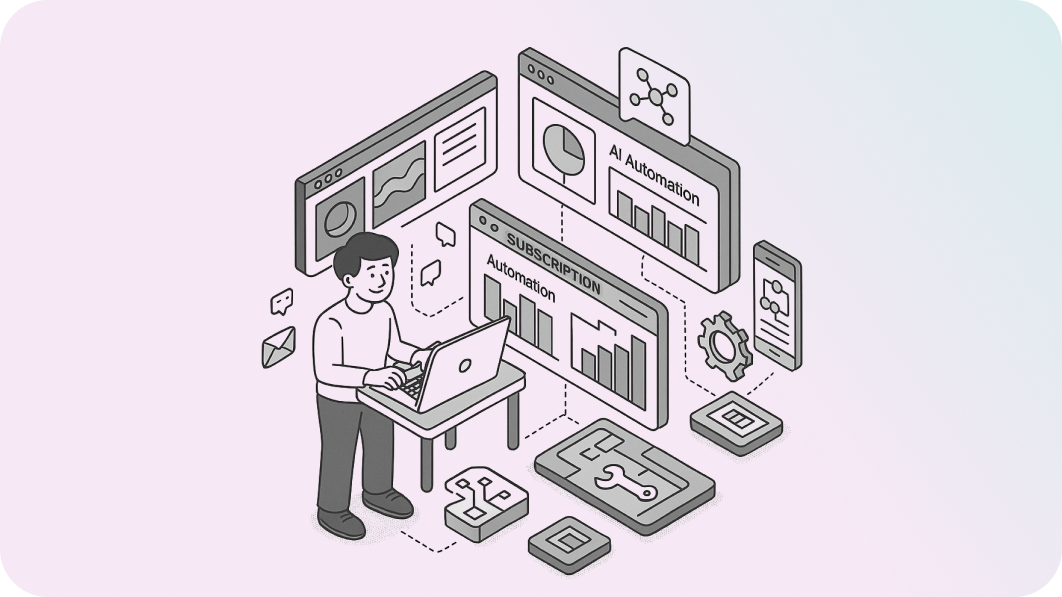
Subscription Management Solution
LG CNS’s subscription management solution serves as the foundation for the emerging home appliance subscription business, a new paradigm in consumer electronics consumption. This model enables consumers to access a variety of products at competitive prices while allowing businesses to secure stable, recurring revenue and build a loyal client customer base. By offering a combination of subscription products, services, and partnership benefits, the solution provides consumers with a wide range of choices tailored to their purchasing patterns and preferences. From product browsing to subscription sign-ups, the mobile-friendly platform ensures a seamless experience. Automated subscription approval, integrated with credit evaluation, significantly reduces product delivery lead times. Additionally, AI-powered fraud detection enhances the security and stability of the subscription business.
Platform Operations Optimized Through DevOps
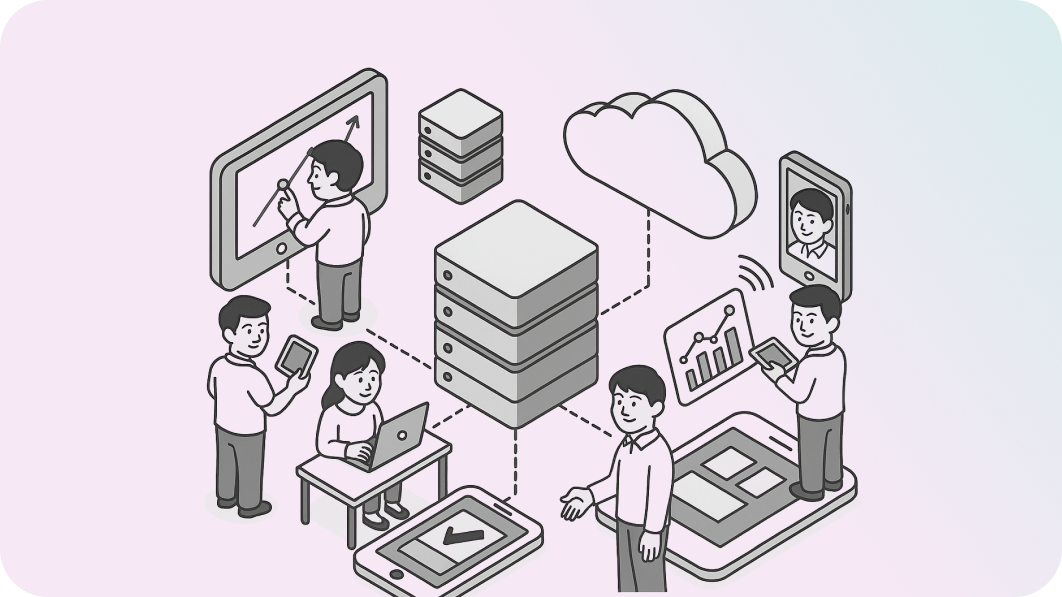
Smart Device Platform Operations
The smart device platform integrates multiple technologies and ecosystems, including devices, mobile applications, and cloud services. LG CNS provides optimized DevOps platform operation services, considering the unique characteristics of each device. It ensures seamless integration of complex components, accommodates diverse device environments, supports real-time data processing, responsiveness, and maintains security, scalability, and adaptability. To achieve this, LG CNS applies agile development and deployment, closely monitors and stabilizes intricate configurations, and delivers scalable, cost-efficient solutions while maintaining high quality and security. Through these capabilities, LG CNS drives business innovation and enhances customer satisfaction.

Integrated Membership Platform Operations
The integrated membership platform connects with various platforms, including commerce, portal sites, and smart devices, enabling seamless user data sharing. It supports multiple authentication methods, such as Single Sign-on (SSO) and OAuth, simplifying the user experience while linking services through a unified platform. LG CNS provides optimized platform operation services that cater to service-specific requirements and enhance user experience. The platform ensures seamless integration across different services, high availability for handling large-scale user data, prevention of data duplication, and robust security and privacy protection. Through collaboration and real-time monitoring, LG CNS efficiently manages these complex requirements, delivering agility and stability. This enhances user experience while maintaining security and scalability, ultimately strengthening competitiveness.

Billing and Advertising Platform Operations
The billing platform processes large-scale transactions in real time, including payments, subscriptions, and invoicing. Meanwhile, the advertising platform must handle millions of ad requests and impressions per second. To meet evolving market demands, such as new pricing plans, advertising products, and payment methods, LG CNS ensures uninterrupted platform operations that maximize user experience while maintaining agility, stability, and scalability. The platform supports high transaction volumes, complex processing models, and stringent security and regulatory compliance requirements. Through rapid feature deployment, stability assurance, scalability, flexibility, and real-time monitoring, LG CNS enhances customer satisfaction and profitability.
The B2C Platform Operation DevOps Framework ensures agile operations, enabling quick responses to various B2C platform challenges while enhancing operational efficiency through automation. LG CNS provides optimized operational solutions tailored to client environments, continuously improving and evolving them to ensure high-quality services with agility, stability, and scalability. With years of accumulated development and operational expertise, LG CNS helps clients save time and costs while minimizing risks.
In an environment where B2C platform competition is intensifying and market changes are accelerating, LG CNS's DevOps-based platform operation services offer the ideal solution for executing effective Go-To-Market (GTM) strategies.
-
Proposes an architecture and optimal CI/CD pipeline tailored to B2C platform characteristics, along with automation solutions
-
Provides platform operation and monitoring solutions customized to client environments
-
Ensures B2C platform quality by offering diverse monitoring strategies, professional testing, and automated testing solutions
-
DevOps enables cost reduction by automating processes and managing resources efficiently. Continuous monitoring and log analysis help detect and resolve issues early, minimizing system downtime and eliminating losses caused by service interruptions. Automating build, testing, and deployment processes reduces manual errors, saves time on repetitive tasks, and lowers labor costs. Resources can be quickly scaled up or down as needed, preventing unnecessary resource waste and reducing maintenance expenses. Strengthening collaboration between development and operations teams minimizes communication gaps and delays, improving overall project efficiency and leading to cost savings. Continuous integration and deployment (CI/CD) also enhance software quality over time, ultimately reducing long-term maintenance costs.
-
The time required to implement DevOps varies significantly depending on factors such as the organization's size, the maturity of its existing processes, technology stack, and cultural readiness. DevOps is not a one-time project but an ongoing process of continuous improvement. Since it focuses on continuous enhancement rather than a single implementation, time is required even after adoption to refine and optimize processes. LG CNS's DevOps operational services help reduce the adoption period and provide the expertise needed to achieve full maturity efficiently.
-
DevOps enables frequent deployments to accommodate software updates and new features. The high level of automation applied in DevOps improves efficiency and quality, reducing the failure rate of changes and minimizing service defects. While ensuring reliability, it also significantly shortens the lead time for deployment into the actual operating environment. By facilitating faster updates and maintaining high-quality standards, DevOps helps meet or exceed service-level metrics, ultimately enhancing client satisfaction with the service.
with Converged MVNO
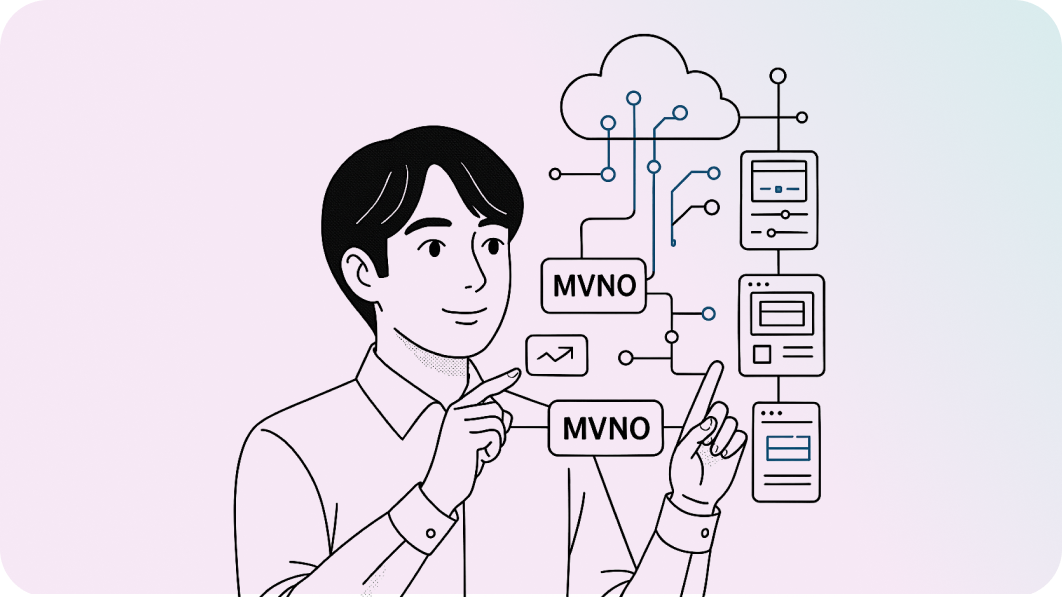
The Only Converged MVNO Provider in Korea
LG CNS stands out as the only provider in Korea specializing in converged MVNO services, offering more than just conventional telecommunications solutions. Leveraging its proven success and expertise in financial MVNO businesses, LG CNS delivers customized benefits to clients while enhancing corporate competitiveness. By implementing an optimal MVNO system that supports cross-industry business models, LG CNS meets diverse client needs and unlocks new business opportunities. Through continuous technological innovation and collaboration, LG CNS ensures top-tier services, maintaining its unrivaled position in the market.
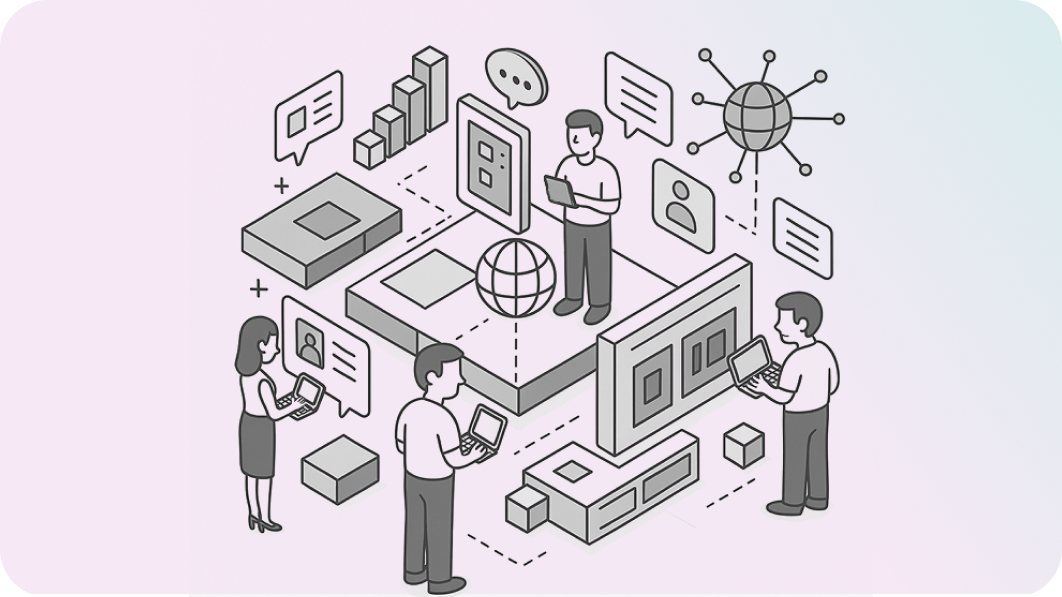
Creating New Business Opportunities Through Cross-Industry Synergy
Many companies seek diversified approaches to attract and retain customers. LG CNS’s converged MVNO service goes beyond conventional budget phone offerings by integrating with industries such as finance and commerce to deliver added value. For instance, customers can receive loan benefits when signing up for mobile services through financial partnerships or earn reward points for purchases in collaboration with commerce companies. By seamlessly integrating with existing services, LG CNS enhances customer touchpoints, strengthens corporate competitiveness, and generates new synergies across industries.

Lowering Barriers to New Customer Acquisition with Innovative Services
One of the biggest challenges companies face in attracting new customers is offering differentiated value and competitive pricing. LG CNS’s MVNO service overcomes these barriers by leveraging customer data to deliver personalized promotions and tailored services. In particular, its cost-effective budget phone plans, combined with customized benefits targeting the MZ generation, appeal to consumers who prioritize smart spending. This strategic approach effectively facilitates new customer acquisition.

Strengthening Customer Retention with Data-Driven Insights
Client churn is a major pain point for many businesses. LG CNS’s MVNO service utilizes data analytics to understand customer behavior and needs, providing personalized benefits and tailored services. For example, it recommends optimal pricing plans based on specific mobile usage patterns or customizes service integration with existing client offerings to enhance satisfaction and loyalty. This approach goes beyond short-term transactions, fostering long-term relationships and enabling businesses to achieve sustainable growth.
-
Unlike traditional telecom services, a converged MVNO goes beyond mobile plans by integrating with existing client services to offer more competitive products and solutions. It leases network infrastructure from the three major telecom providers while building an ecosystem through various partnerships, enabling the delivery of flexible and innovative new services. This allows customers to experience a wider range of tailored products and services that enhance their overall experience.
-
A converged MVNO differs from a simple reseller MVNO in its operational structure and service offerings. A converged MVNO operates its own customer service and billing system, reducing billing system fees while allowing for real-time implementation of independent pricing, discounts, and promotions. In contrast, a simple reseller MVNO continuously incurs fees for using the Mobile Network Operator (MNO) infrastructure and cannot design its own pricing plans, being limited to selling only the products developed and approved by the MNO. Additionally, simple reseller MVNOs have limited access to telecom data, making data-driven personalized marketing more challenging.
-
There are three main reasons why MVNOs have been gaining attention. First, the government has eased regulations and expanded institutional support to promote competition in the domestic telecom market. Measures such as wholesale price reductions and improved selection criteria encourage more competitive MVNO providers to enter the market. Second, while MVNOs were once perceived as offering lower-quality services due to their affordable pricing, recent improvements in service quality and the introduction of diverse pricing plans have positively changed their image. Lastly, as data utilization becomes increasingly important, converged MVNOs are being leveraged to collect and analyze customer data, enabling personalized services and enhancing customer loyalty. Given these market dynamics, major companies across industries—including KB Kookmin Bank, Woori Bank, Toss, and KG Group—are adopting converged MVNO services.
Product Lifecycle Management (PLM) solutions are rapidly evolving alongside digital transformation. Globally deployed PLM solutions are increasingly adopting cloud-based architectures, offering greater flexibility and scalability. With the integration of AI and generative AI, these solutions now enable smarter product management. In particular, the adoption of large language models (LLMs) and AI chatbots enhances product data analysis, automates decision-making, and provides real-time support, significantly improving the convenience for business users. To accelerate innovation and shorten time-to-market, companies are shifting toward cloud-based PLM solutions. As personalized client experiences become a priority, PLM solutions must now integrate data management across the entire product lifecycle—including design, development, and deployment—to deliver seamless and efficient operations.
Develop And Launch Products Quickly And Intuitively
VIZIER is an AI-driven PLM solution that maximizes expertise and efficiency in product lifecycle management through real-time AI support for product information, processes, and management know-how. With a simple drag-and-drop interface, users can quickly create and launch products. Additionally, its micro-interaction-based user-friendly interface, impact analysis, and custom validation features enable precise and accurate data management.
-
Accumulation of product management expertise and comprehensive A to Z support powered by generative AI
-
Quick product creation and launch through a simple drag-and-drop assembly process
-
Widget-based, hyper-personalized dashboard
-
Designed based on the standard model of the telecommunications industry (TM Forum), VIZIER is optimized for managing telecommunications products (MNO, MVNO). Its three-tiered structure (Offer-Component-Resource) allows it to be applied to non-telecommunications products such as financial services.
-
VIZIER applies a Microservice Architecture (MSA), allowing clients to freely develop and deploy new features within a dedicated dashboard. The widget-based hyper-personalization feature enables unrestricted addition of new functionalities and customization of the interface, allowing users to freely select, arrange, and utilize functions based on their needs.
-
VIZIER includes a meta-structured customizable data area alongside its standard model, ensuring that all types of client data can be integrated without modifying or developing additional models. This dramatically reduces the development time required for implementing a product management system. Additionally, the solution flexibly accommodates modeling changes during operations. It also provides a custom validation feature, allowing businesses to add and apply validation rules freely. This creates a self-sustaining structure where product management expertise naturally accumulates over time.


